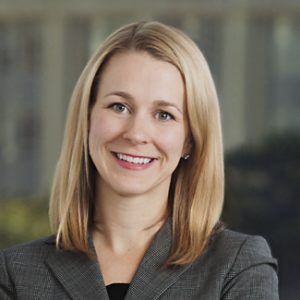

The following, non-exclusive list presents potential remedies for tenants who are still obligated to pay rent while their businesses have been closed due to local orders, however, in many cases, commercial tenants are not afforded the protections provided to residential tenants:
- Absent the existence of a threat to person or for just cause, the Texas Supreme Court has ordered that no residential eviction trial, hearing or other proceeding may be conducted, and all deadlines are tolled, until after April 19, 2020. The Office of the Dallas County Courts has advised Dallas County Justices of the Peace to suspend all eviction hearings until at least May 22, 2020 to prevent renters from being displaced. A least one Tarrant County Justice of the Peace has temporarily suspended eviction hearings to a date after April 13, 2020 and others have issued orders that no writs of possession will be granted until further order. If a multi-family residential landlord has a loan with Fannie Mae, Freddie Mac or HUD, the landlord may not make any eviction filing or require a tenant to leave its property for 120 days from the enactment of the CARES Act on March 27, 2020. As a practical matter, many counties, including Tarrant, have suspended jury trials and in-person hearings through May. Such a suspension is an additional impediment to eviction.
- Many lenders are deferring loan payment obligations. In furtherance of the CARES Act, individuals with single family mortgages may request from their loan servicer a 180 day payment forbearance, and during such forbearance no additional fees, penalties or interests shall be assessed by the lender. This deferral period may, upon a showing of cause, be extended for an additional 180 days. Even multifamily landlords current under their mortgages with Fannie Mae, Freddie Mac or HUD as of February 1, 2020, may, upon a showing of COVID-19 financial hardship, request a 30 day forbearance of rent from the loan servicer and possibly up to two additional 30 day forbearance periods. A tenant should communicate with its landlord to determine whether the landlord is receiving mortgage payment abatement and whether an abatement of rent is also available. Tenants and homeowners alike should be aware that the CARES Act does not provide for a deferral of any applicable real estate tax obligations or home insurance premiums.
- Federally backed loans are subject to a moratorium on foreclosure for a period of 60 days. The moratorium applies to the initiation of foreclosures and to the completion of the foreclosure in process. All 254 Counties in Texas have the authority to determine whether residential and/or commercial foreclosures may be held during the pandemic. Most Counties have a web page with links to the most recent emergency orders issued by the County.
- Defense of impossibility. The impossibility defense, which is treated the same by Texas Courts as the defense of impracticability, applies when a party, through no fault of its own, is prevented from carrying out obligations in a contract due to government regulation. In some instances, this defense could apply to excuse performance in a contract or lease in its entirety, but read the fine print of your contract or lease as a written force majeure clause may constitute a waiver of such defense.
- SBA loan assistance. The CARES Act expands the applicability of the Emergency Economic Injury Disaster Loan program to include sole proprietorships and other small businesses as eligible for loans from the Small Business Administration, provided that the business, together with any affiliated businesses, does not have more than 500 employees. Loans may be used to meet payroll, health benefit costs, employee compensation, mortgage interest, rent, utilities and interest on debt incurred before February 15, 2020. The CARES Act waives personal guarantees for loans that do not exceed $200,000 in certain circumstances.
There are options—including simply the benefit of time to negotiate—available to tenants who find themselves unable to make rent in April due to the recent business closures. Ideally, tenants, landlords, and lenders can work together to find a solution to what we all hope is a temporary issue.
Mary Barkley is a partner in the Litigation Section and Lee Kirner is a partner in the Business Law section of Cantey Hanger LLP. For more information call 817-877-2800 or visit www.staging.poised-team.flywheelsites.com.
This article is for information purposes only and is not intended to be legal advice or substitute for consulting an attorney. We recommend that you discuss your particular situation with your attorney when you need legal advice.
